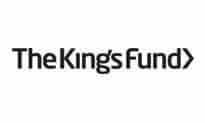A financial crisis in the NHS is “inevitable” by 2015-16 or even sooner, the King’s Fund has warned.
In a report due to be launched this morning, the think-tank effectively says that the NHS as a whole will fail to meet the ‘Nicholson challenge’, while some organisations will need emergency support.
The Nicholson challenge was set out by the just-retired chief executive of NHS England, Sir David Nicholson, in 2008.
He warned that the NHS could face a funding gap of £20 billion by 2015-16 as a result of flat funding and rising demand, caused by an ageing population and a growing burden of chronic disease.
He urged the health service to find efficiency savings to bridge the gap using quality, innovation, productivity and prevention initiatives, to avoid the rationing, longer waiting lists, and deteriorating services of previous contractions.
However, organisations such as the King’s Fund have been warning for two years that while the NHS has managed to keep up with the early years of the challenge, most of the money has come from holding down salaries, management costs, and the tariff that determines what hospitals are paid for treatments.
At last year’s NHS Confederation conference, Sir David warned that more fundamental reform would be needed to maintain progress, and called for a ‘big conversation’ with the public on what that might look like.
Sir David’s warning has been repeated by the commissioning board’s incoming chief executive, Simon Stevens, but the King’s Fund is now warning the service is out of time.
Today’s report says the NHS budget is “under huge pressure” and that things will get worse when the government slices off £1.8 billion for the ‘Better Care Fund’ to support integrated health and social care.
The National Audit Office warned recently that while the fund is supposed to ease pressure on budgets by keeping people out of hospital, the evidence base for this is thin, and the government has no idea about the timescale over which any savings might be achieved.
The King’s Fund says that new funding will have to be found for the NHS, and that this should be used to properly fund service change, while making emergency funding available to “otherwise sound” organisations in immediate financial difficulty.
John Appleby, the King’s Fund’s chief economist, said: “There is still scope to improve efficiency in the health service. However, it is now a question of when, and not if, the NHS runs out of money.
“It is essential that politicians from all parties are honest about the scale of the financial pressures facing the NHS and initiate a public debate about the long-term sustainability of the health and social care system before, and not after, the general election.”
NHS England has started to set out new models for primary, community and acute care.
It published a ‘Transforming Primary Care’ report last week that implicitly relied on IT, both to improve access for “hard working families” and to create GP-led multi-disciplinary teams to support frail, elderly patients.
Integrated care 'pioneers' are also experimenting with shared records and IT to improve access to services, while new models of IT will be needed to support re-organised acute services.
However, funding rather than efficiency is likely to be the subject of public debate in the run-up to the election.
Former Labour health minister Norman Warner has called for a monthly NHS fee to be levied alongside the council tax, while Frank Field, the minister once asked to “think the unthinkable” on welfare, has suggested a 1% rise in national insurance contributions to meet the Nicholson challenge.
The Conservative party may be forced to come up with something in response.
Today’s King’s Fund report notes that without action the NHS’ share of GDP will fall to 6% by 2021, which would be its lowest share since 2003 – the year Labour started to pour money into the health service to solve the last, big funding crisis.

